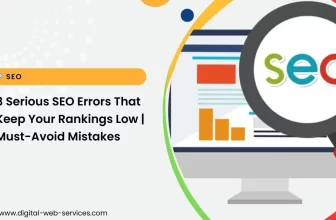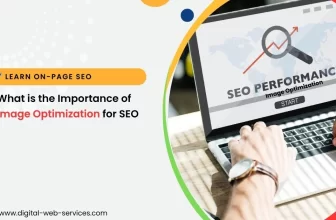
Search Engine Optimization landscape is a truly dynamic one and is changing constantly as search sites go on updating to enhance ways how data is being demonstrated, and marketers are thus, left in a state of relentless adaptation. With this consistent change, it is not at all difficult for incorrect information or myths to spread. We know that search sites are used to sharing only a restricted amount of information regarding how it has got transformed and advertisers could easily miss industry news relating to updates and are left functioning using less-than-efficient approaches.
Check your site health in 5 minutes with SEMrush SEO Audit Tool
Every industry seems to have certain myths and misconceptions and SEO is not an exception to the rule. Google has been consistently trying to expose these common misconceptions. Let us explore some of the most common search engine optimization misconceptions and myths that have been busted by Google professionals & SEO experts.
Myth: SEO Is a Cakewalk
If you assume that SEO is nothing but a completely level playing field, you must think again. You could never be more mistaken. Search engine optimization is no cakewalk. It is believed that SEO is supposed to be a fair competition featuring websites that are at equal footing for competing with each other for queries. Unfortunately, it isn’t so and it would not be ‘fair’ again. As far as, SEO is concerned, different websites demonstrate different off-page and on-page SEO signals. Hence, they would be ranking differently. We understand that the SEO signals would be including factors such as technical setup, page performance, backlink profile creation, and SERP real estate, etc. that could be successfully measured and enhanced. However, SEO signals are not necessarily limited to only these factors.
It is a fact that Google would be granting brand new domains during the ‘Google Honeymoon Period’. However, this is supposed to be a brief and transitory moment during which a specific website is supposed to perform well, rank high even though they cannot boast of sufficient signals then. It is believed that websites that perform well during Google’s grace period tend to do exceptionally in relevant competitive search queries consistently. The Google Honeymoon Period provides some valuable assistance and guidance to brand new websites at their launch. However, that doesn’t make SEO a smooth effortless process. It is not supposed to be a level playing field with no bumps and hitches. SEO is pretty challenging but you could emerge victorious if you are determined and dedicated. Be sure to avail expert services of Toronto SEO agency to overcome all SEO issues and chalk out an effective SEO strategy for 2022.
Myth: Exact Match Domains Would Be Having an Advantage
As per https://www.forbes.com, exact match domains seem to be regarded often as an important potential boost or ranking signal for a specific keyword. The fact remains that any website or brand for that matter could potentially rank for a specific or relevant keyword. Way back in September 2012 as an update was released by Google and it was called the EMD update that was aimed at preventing low-quality websites from getting higher rankings simply because they are having keywords incorporated into their domain name.
Myth: SEO Is Certainly a One-Time Project
At digital marketing conferences, attendees often get to hear from experts that it is of pivotal importance to get things right if you wish to rank well. This certainly is the truth but is not 100 percent accurate. Just like any other corporate investment in assets, with time, we find that the same investment would be wearing off eventually and inevitably. Similarly, SEO best practices that existed in the past are sure to become outdated and out-and-out obsolete with time. If you wish to stay well ahead of the competition particularly in the more rewarding and lucrative niches, you need to regard SEO as an ongoing endeavor with periodic and planned spurts of boosted and intense activity that would be scheduled well in advance.
We understand that certain factors like snippet representation, directly affecting and influencing UX or User Experience and signals must necessarily be scrutinized, monitored meticulously and accordingly improved. We know that the same is applicable to page performance that again is supposed to be directly responsible for the way users are experiencing the website. Other important factors such as management of backlink liabilities may just necessitate spot checks and an integral part of a yearly on-page and even off-page audit.
Myth: Content Should Be Stuffed with Keywords
Numerous organizations sacrifice content by excessively repeating keywords. Keywords are applied by them in an unprofessional way within their description tags and content to such an extent that they cease to make any sense anymore. Search engines, in their infancy, relied tremendously on the keyword density in landing pages for correlating their relevance to the search queries. However, 20 years later, keywords have lost quite a bit of their SEO significance.
Google has always ignored Meta keywords. Moreover, the keywords present in URLs are also not being utilized for ranking purposes. Keywords are less likely to impact click-through rates particularly when compared to rich snippets breadcrumbs that certainly do assist users or site visitors to navigate. Keywords are no longer counted on pages looking for an ideal ratio. Content that could be represented effectively by both data, as well as, written words, is considered to be crucial for the perspective of your site but keywords are irrelevant.
Myth: Google Has a Score to Settle and Hates My Website
The personal animosity grievance is baseless and irrational. Google has expressed any dislike for any specific website as they know that it is nonsensical to run a global business organization based predominantly on animosity and personal enmity. A frequent complaint against Google is that a website does not get a ranking simply because Google has a personal score to settle. However, this could be refuted convincingly with a comprehensive SEO audit that would help you discover all the shortcomings associated with your website relating chiefly to the content, technical aspect, on-page, and even off-page SEO. The Google penalties known as the Manual Spam Actions are never triggered because of personal animosity or vendettas. These penalties could be withdrawn simply by putting in a compelling and convincing Reconsideration Request. Moreover, you must understand that Google generally shows indifference and somewhat aloofness towards websites and this may include its very own properties that had been penalized in the past for diverse transgressions.
Conclusion
SEO is certainly not magic. SEO is supposed to be predominantly data-driven, hence complicated issues could be effectively broken down into manageable and small data chunks to analyze and explain. The article helps to highlight precisely what counts in terms of search engine optimization. Once you have discovered the common SEO myths, you could go ahead and create a winning SEO formula.
Digital Web Services (DWS) is a leading IT company specializing in Software Development, Web Application Development, Website Designing, and Digital Marketing. Here are providing all kinds of services and solutions for the digital transformation of any business and website.










